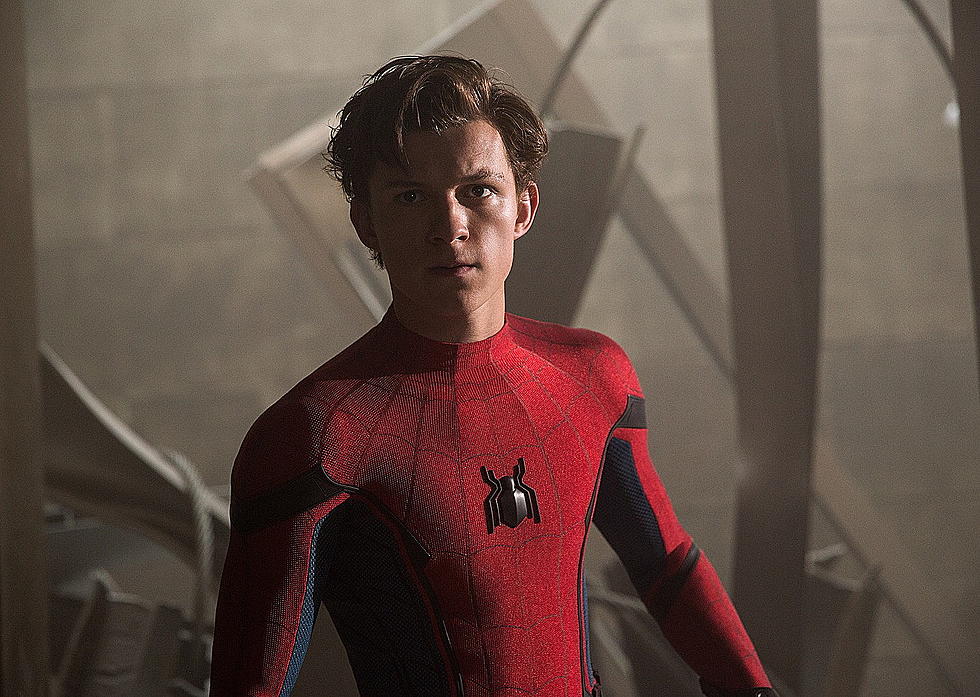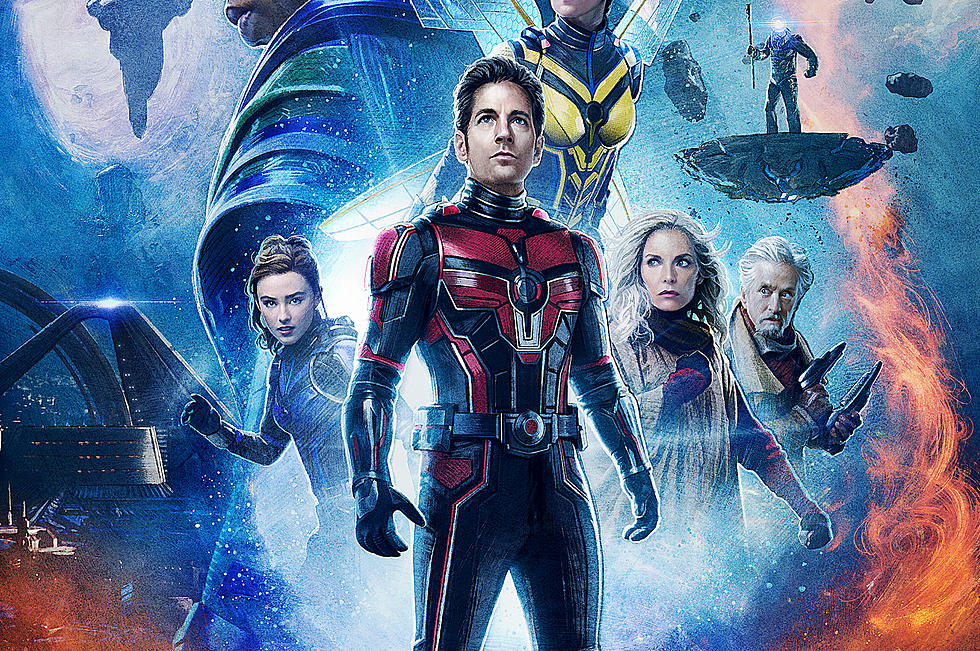‘Captain America: Civil War’ Spoiler Discussion: The Comics, the Villain, and That Ending
The video above and article below contain SPOILERS for Captain America: Civil War. In case that wasn’t clear from the headline about a “Spoiler Discussion.”
It is Friday, May 6. War has begun.
Captain America: Civil War is now in theaters, heralding a new age for the Marvel Cinematic Universe. With Captain America (Chris Evans) and Iron Man (Robert Downey Jr.) fighting for the fate of the Avengers on screens all around the world, ScreenCrush Editor-in-Chief Mike Sampson and Film Critic Matt Singer convened to fight about Marvel’s newest blockbuster. (Hopefully there will be less bruising and fewer arrests.) Below, Matt goes through a few extra questions they didn’t have time to discuss in the video.
1. How does the Civil War movie compare to the Civil War comics?
They start from almost the exact same place and wind up at very different destinations. In both versions, a superhero-related accident drives a wedge between Iron Man and Captain America, dividing the Avengers and the super-powered community as a whole. In the Civil War mini-series, written by Mark Millar and illustrated by Steve McNiven in 2006, a bad guy with the power to blow himself up uses said power to destroy a large part of Stamford, Connecticut, killing hundreds of people. In Captain America: Civil War, the bad guy is MIA but the basic idea remains; this time, it’s inexperienced hero Scarlet Witch (Elizabeth Olsen) who inadvertently causes several civilian casualties when she can’t properly contain an explosion.
On the page, where costumed characters’ secret identities are much more of a narrative focal point, the government responds by passing the “Superhero Registration Act” All vigilantes are ordered to register and become licensed operatives. Onscreen, the United Nations proposes the “Sokovia Accords,” with more of an emphasis on government oversight of the Avengers and less concern about secret identities (because almost none of the movie Avengers have them). Captain America and Iron Man’s roles remain the same across both mediums; Iron Man wants the Avengers to fall in line and Captain America refuses. Cue a [dramatic pause, followed by clap of thunder] civil war between the heroes.
From there, the two stories diverge pretty wildly. In Millar’s book, the violence quickly escalates and several characters are killed. Spider-Man (who’s much older and established in the comics than the movie) reveals his secret identity on national television to help bolster Iron Man’s cause. He later defects to Cap’s side after he sees some of the stuff Tony Stark does in the name of security — like employing super-villains as government agents and holding captured heroes in a super-prison without a trial.
The endings are pretty different too. The Civil War movie sees Captain America beat Iron Man in a one-on-one fight in Siberia, rescue his imprisoned comrades, and find asylum in Wakanda with Black Panther. The big final fight in the Civil War comic series spills out into the streets of New York, and causes even more collateral damage; just as Cap is about to beat Iron Man, he’s tackled and stopped by a bunch of ordinary bystanders who believe he’s the bad guy in the scenario. Realizing the fight will resolve nothing, Cap turns himself in. Iron Man becomes the new head of S.H.I.E.L.D. and forms the “50 State Initiative,” that puts registered superheroes in every state in the country. (If you want to know why Sam Jackson said the word “initiative” so much in the early MCU films, this is why.) In an epilogue, Captain America is put on trial, and then assassinated by Crossbones and a brainwashed Sharon Carter.
The biggest difference in the two stories, though, is their respective tones. In the Civil War movie, the heroes really seem to like each other, and spend most of the film trying not to fight; talking, arguing, and even pleading with each other to see things their way. Even when they start beating each other up, they go out of their way not to hurt one another. The mood is often dark, but the overall film is hopefully that someday these characters can resolve their differences.
In the Civil War comic series, Tony Stark basically turns into a fascist, and sends homicidal maniacs like Bullseye and Venom to arrest his friends, tacitly approving their brutal tactics (Spider-Man is nearly killed after he tries to switch teams.) Captain America is jailed and then murdered. Except for a handful of holdouts, every hero joins the Initiative or gets sent to prison. The mood (not to mention the metaphor of the government doing whatever it takes to protect its citizens) fit the atmosphere of post-9/11 America, but it’s so bleak and the characters act so uncharacteristically cruel and angry, that I’m inclined to argue that this is a rare case where the movie adaptation is superior to its source material.
2. What’s the deal with this Zemo guy?
Captain America: Civil War continues Marvel’s trend toward making huge changes to their villains to suit whatever story they’re telling. In the pages of Marvel Comics, Baron Zemo is a name shared by a two generations of evildoers. Heinrich Zemo was a deranged Nazi scientist who clashed frequently with Captain America; years later, his son Helmut Zemo assumed his identity (and his distinctive pink hood) and carried on his quest to enslave the world as the leader of a group with the amazing name “The Masters of Evil.” (He’s a bad dude, but he’s a good son.)
The film’s Zemo bears almost no resemblance to his comic-book counterpart. Daniel Brühl plays him as a man who was so devastated by the loss of his family during the destruction of Sokovia that he dedicated himself to getting revenge on the Avengers. There’s no indication that he’s continuing the family business of world domination, or that he has any interest in wearing purple masks and making outsized pronouncements about his diabolical awesomeness.
Brühl’s really good in Civil War, and his character makes a lot of sense, but it is kind of a bummer that this Baron Zemo isn’t quite the terrifying badass of the comics. That Zemo did all kinds of cool stuff — like pretending to form a team of heroes called the Thunderbolts to curry public favor as part of a plan to take over the world — that this Zemo will never get to do onscreen.
3. At the end of the movie, Cap and his team are in Wakanda? What’s that?
Right; Wakanda is Black Panther’s home country. T’Challa (Chadwick Boseman) is not just a superhero, he’s also a king. Civil War doesn’t show much of Wakanda, but what little we seen onscreen jives with the way it’s portrayed in Marvel Comics, as the most technologically advanced country on the planet. So if you’re a guy like Steve Rogers, and you’ve got a buddy like Bucky Barnes with some unbreakable mental programming, this is the place you’d want to take him. If anyone could find a cure for Bucky’s problems, it’s a team of Wakandan doctors.
Although a lot less was made of it in the film than in some Black Panther comics (and the phony baloney Civil War script synopsis that got passed around), Wakanda is also home to the world’s largest deposit of vibranium, an incredibly rare and super-strong metal. Vibranium’s the stuff that makes Captain America’s shield unbreakable, and it’s why Black Panther can shrug off bullets at point blank range (His costume’s covered in it.)
4. Wait, so who won?
Well that’s the thing, right? There isn’t a clear-cut winner. It’s probably more accurate to say everyone’s a loser. Tony’s got control of the Avengers, but he’s also lost most of the actual team members and his relationship with Pepper Potts might be irreparably broken. And Steve Rogers isn’t rotting away in prison or working for a corrupt politician, but he’s stranded in Wakanda for the foreseeable future.
I have a feeling that stalemate is going to piss some viewers off; they’re going to want clarity and resolution. But I actually think the movie is stronger for its ending and its refusal to take a side in the battle between #TeamCap and #TeamIronMan. For the reasons why, look for an essay I’ll have going up here on ScreenCrush on Monday morning.
More From WDKS-FM










